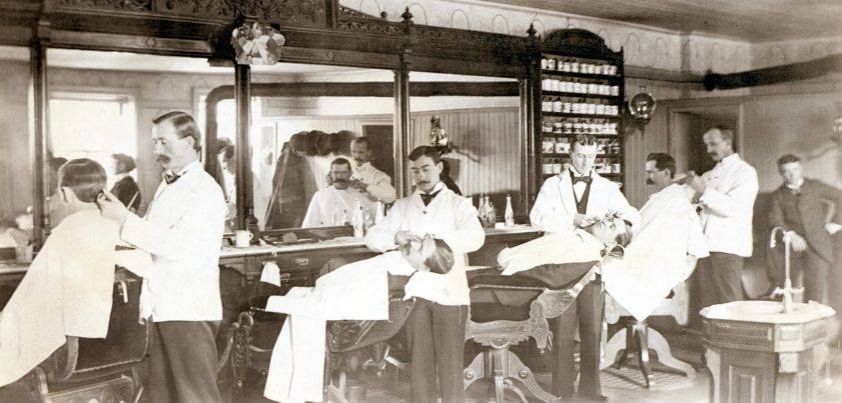 This story by Ring Lardner shows how satire can be used to raise awareness of problems in society. A small-town barber talks to a visitor about local life. The barber seems to think the town is a good place to live. However, the stories he tells suggest otherwise… especially if you are a woman or impaired in some way. Most of the barber’s stories are about a dead customer who he says had a kind heart but just liked to have fun with people. We hope you can see that the customer was not kind at all!
This story by Ring Lardner shows how satire can be used to raise awareness of problems in society. A small-town barber talks to a visitor about local life. The barber seems to think the town is a good place to live. However, the stories he tells suggest otherwise… especially if you are a woman or impaired in some way. Most of the barber’s stories are about a dead customer who he says had a kind heart but just liked to have fun with people. We hope you can see that the customer was not kind at all!
Haircut Text / PDF / Audio (4,800 words)
Far from being a kind-hearted man who liked to play innocent jokes on people, it is clear from the story that the dead customer (Jim Kendall) was actually the town bully. His “jokes” were born of cruelty, not fun. Whitey makes light of the way Kendall treats his wife, even though this is clearly a form of domestic abuse. He seems to see nothing wrong in Kendall’s treatment of a mentally impaired boy named Paul, despite the fact that this leads to Paul withdrawing from most of town society. Finally, we see Kendall’s failed attempt to rape a townswoman greeted with jokes as opposed to condemnation.
The story highlights the shallowness in small-town U.S.A. during the early 1920s. The Saturday afternoon gatherings in Whitey’s shop exhibit a form of “moral blindness”. Whitey’s monologue reflects the town conscience. 1920s America was “man’s world” and, in the other men’s eyes, Kendall was a “man’s man”. Because of this, and perhaps the fact that they all probably grew up together, the men were either insensitive to or prepared to overlook Kendall’s moral shortcomings.
Thanks to Paul’s ‘accident’ in the boat, there is some satisfaction in the knowledge that Kendall’s cruel jokes did not go unpunished.